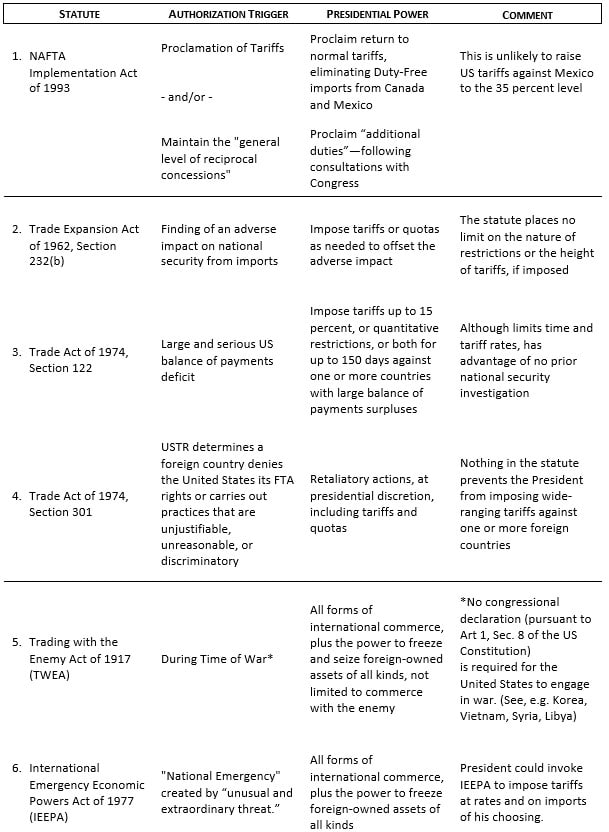We may soon learn whether the President has the legal authority to impose tariffs on imports without Congressional approval or whether the administration will bypass WTO rules and impose new barriers to imports. The first test may come as the result of an April 20th Presidential Memorandum directing Commerce to initiate an investigation under Section 232(b) of Trade Expansion Act of 1962 to determine the impact of steel imports on national security.
A Section 232 investigation is undertaken to ascertain, among other criteria: domestic production needed for projected national defense requirements; domestic industry capacity; the availability of human resources, materials, and facilities essential to national defense; the impact of foreign competition on the economic welfare of the domestic industry; and, other factors that could cause a weakening of the national economy. 19 U.S.C. 1862(d); 15 C.F.R. 705.4.
Unlike a more targeted antidumping and countervailing duty investigation, the Section 232 investigation could give the president the legal authority to place broad restrictions on steel imports into the United States — a move that could potentially have even bigger consequences than the administration’s investigation into unfair trade practices.
There have been only 26 Section 232 investigations total, and this is the first one since 2001. Only two have resulted in affirmative trade actions: the oil embargo against Iran in 1979 and the oil embargo against Libya in 1982. In all others, Commerce declined to recommend that the President take action.
See the attached for a summary of the statutory authorities available to the President. It is important to note that while the President probably has the requisite authority where Congress has delegated some of its power to the President, his actions still may be challenged in court.

